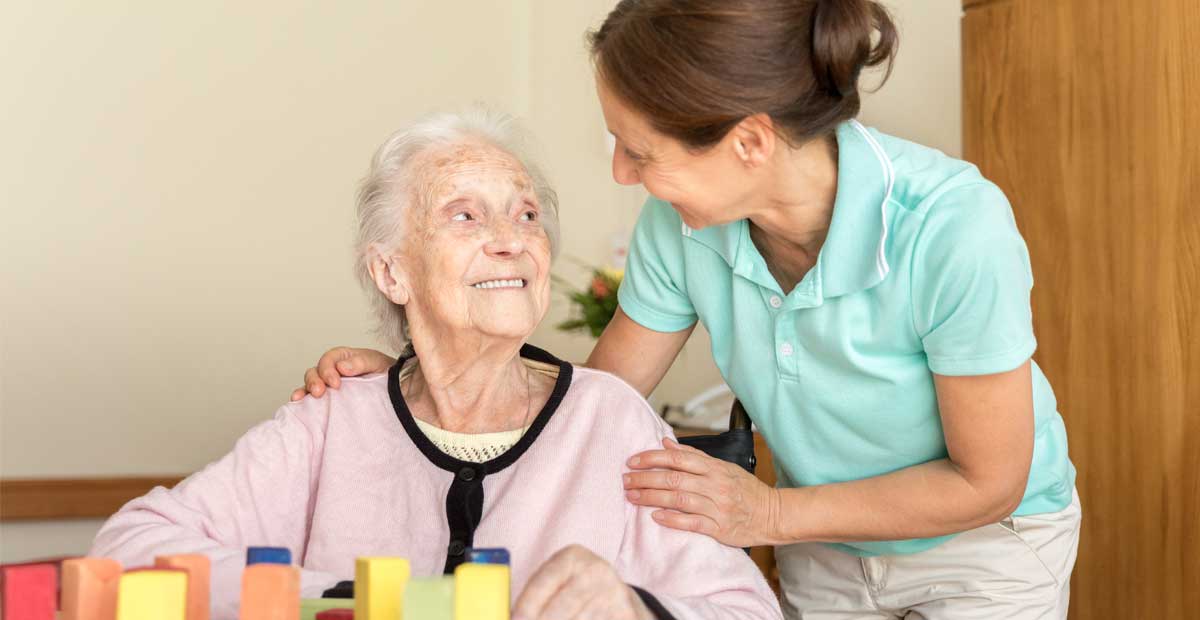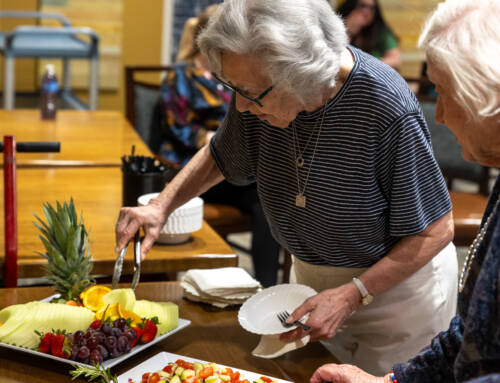As your loved one’s dementia progresses, you may notice it has become increasingly more difficult to communicate with them. They may take longer to respond to questions, or forget what they’re saying mid-sentence. They may also have trouble staying focused on the conversation if there are too many distractions around, or get frustrated because they keep forgetting what words to use.
It’s important to remember that no one is in control of your loved one’s ability to communicate; even if they try their hardest, their brain just can’t do certain things because of their dementia. Although no one can change the symptoms of their dementia, there are a few simple ways to keep stress low when communicating with your loved one:
Don’t remind them that they have trouble remembering. “Don’t begin a conversation by saying, ‘Don’t you remember?’” advises Masonic Village at Elizabethtown Organizational Development and Training Instructor Diana Sarver, who holds training courses on communicating with those with dementia for family caregivers. If they can’t answer a question because they get confused, or if their answer seems off topic, don’t correct them or ridicule them – rephrase the question and wait for their response again.
Encourage them to communicate. Although they may have difficulty communicating everything they want to say coherently, let them talk without interruptions. If you ask them a question, give them enough time to respond so they don’t feel rushed, and try not to finish their sentences if you think you know what they’re going to say.
Ask simple questions. If you are asking them to make a choice about something, like what to wear or what they want to eat, don’t give them a long list of items. Give them a choice between two different options on the list, and if they refuse both of the options, whittle down the list by offering two more.
Use body language to communicate your message. Holding your loved one’s hand, or sitting on the couch next to them can be a good way to keep them focused. Keeping your posture and tone of voice positive can help keep them (and yourself) from getting frustrated.
Watch for nonverbal communication. Minimize distractions in the room so you can pay attention to not only their words, but also their movements and facial expressions. They may have difficulty phrasing certain things, but watching if they smile, chuckle, frown or use their hands to communicate can help you better understand what they’re saying.
By remembering to slow down and not get frustrated, you and your loved one will be able to communicate much better. For further support with caring for and communicating with your loved one, you may find it helpful to join a support group. Masonic Village at Elizabethtown offers a free community dementia support group for the Elizabethtown community to help give families valuable resources in their journey.




